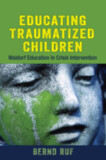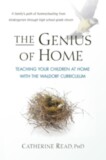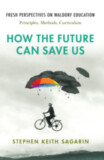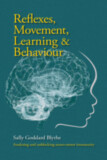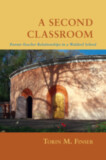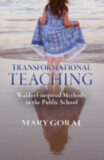Listening to Our Teachers
Advocacy through Research
- Publisher
SteinerBooks - Published
20th August - ISBN 9781621483755
- Language English
- Pages 144 pp.
- Size 5.5" x 8.5"
This book (first published as Silence Is Complicity) began life at an Antioch University Waldorf program for educators to introduce students to action research, a philosophy and methodology for transformative change through the process of taking action and doing research. This revised and expanded edition focuses on research and the inner life, indigenous research methods, and much more—all to empower teachers and support their enthusiasm for learning and developing new curricula. Teacher research goes beyond personal understanding to a level of documented inquiry that holds up to public scrutiny while also challenging misguided funding, tests, and legislation.
Teachers today are caught between “best practices” as recognized by dedicated educators and the arrogance of standardization imposed regardless of the students’ unique capacities. Good teaching is interactive—watching and observing the children leads to innovative lesson plans and creative group activities.
Teachers must have a chance to research, share their findings, and advocate for change. The author makes the case that the time is right for educational renewal: “Research is not just about out-comes and school reform. This is an opportunity for awakening, for inner development. In this regard, there are truly no limits to knowledge—no boundaries around personal growth.”
This volume is a revised, expanded, and updated edition of Silence Is Complicity: A call to let teachers improve our schools through action research—not NCLB, published in 2007 by SteinerBooks.
C O N T E N T S:
Introduction vii
1. Why Standardized Testing Is De-structive
2. The Cultural Life in Community
3. Opening a Space for Research: Questions
4. Perceptions of Obstacles to Teacher Research
5. Reinventing Research: New Concepts, New Approaches
6. Why Do Research?
7. Seeing, Feeling, Finding Your Question
8. Thoughts on Research Methods
9. Qualitative Research Design: The Five Essential Components
10. Organizing a Research Project
11. Ethical Consideration in Research
12. Learning from Indigenous Ways
13. Sharing Research
14. A Sampling of Recent Master’s Projects
15. A Collaborative Model for Teacher Research
16. Research and the Inner Life
17. Why Do Research? (Revisited)
18. The Uncertainty Principle in Research
19. The Use of AI for Teacher Research
20. Research as Teacher Empowerment
Appendices:
1. A Metaphor: Soulful Soup by Erin Geesaman Rabke
2. Kairos: Healing in a World of Need by Karine Munk Finser
3. World Social Initiative in Transition by Joan Sleigh
4. Alternative Question Formats
5. Fieldwork Strategies and Observation Methods
6. Interviews
7. Variety in Qualitative Inquiry: Theoretical Traditions
8. Typology of Research Purposes
9. Sampling Strategies
10. Design Issues and Options
11. Variations in Interview Instrumentation
Bibliography
Torin M. Finser
Torin M. Finser received his PhD in educational leadership from Union Graduate School, his MA in education from Adelphi University, and his BA from Bowdoin College. He taught at the Great Barrington Rudolf Steiner School, where he also served as faculty chairman. He has done extensive consulting with schools in organizational dynamics and leadership development and has been a keynote speaker at conferences around the world.
Dr. Finser is the author of numerous books, beginning with School as a Journey (1995), which has been translated into Mandarin, Farsi, Thai, Arabic, Korean, and Spanish. Torin has served as General Secretary of the Anthroposophical Society in America and Chair of the Education Department at Antioch University New England, and is currently Director of Waldorf Programs.
A founder of the Center for Anthroposophy, he has recently pioneered their new Building Bridges Program for practicing teachers in independent and charter schools and Explorations for Waldorf parents. Educational History PhD, Union Graduate School, 1994 Educational Leadership with emphasis on Teacher Stress/Renewal MA, Adelphi University, 1978 Education BA, Bowdoin College, 1977 Double major in history and German Literature. Graduated in three years, summa cum laude, Phi Beta Kappa. Waldorf, 1960–1974 Student at three Waldorf Schools: Rudolf Steiner School in NYC Green Meadow Waldorf School, NY, Freie Waldorf Schule in Krefeld, Germany.
Torin is married to Karine, has six children, and is also now a very happy grandfather!



